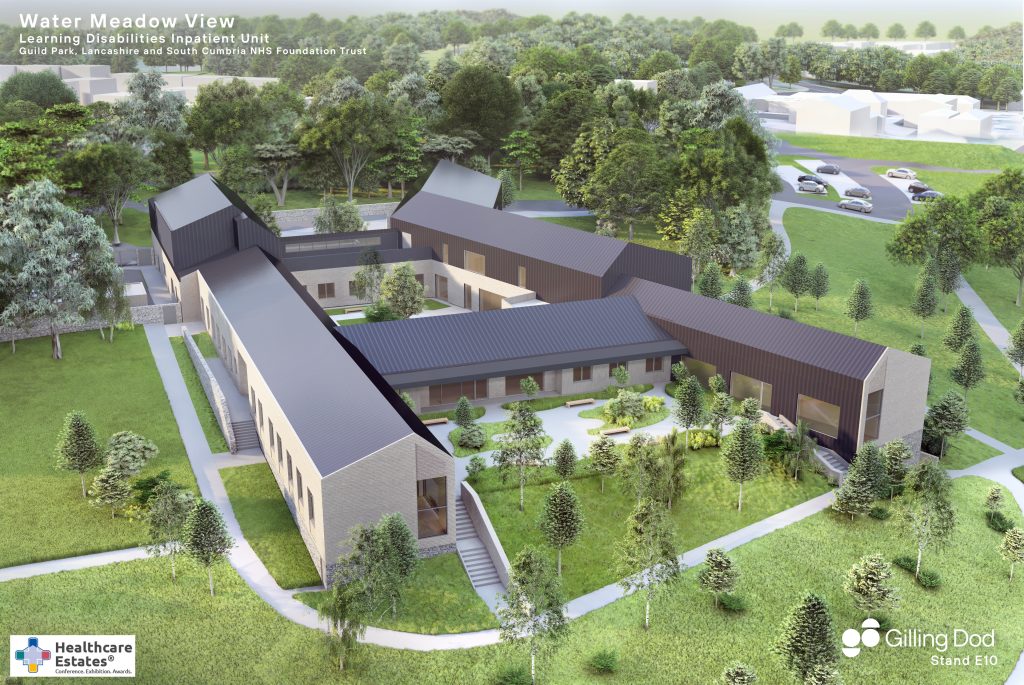To support the delivery of the new Water Meadow View Inpatient Unit, our team has been commissioned by Lancashire & South Cumbria NHS Foundation Trust to provide specialist sustainability engineering services.
This includes complex future-use thermal modelling, operational energy modelling, energy-in-use predictions, and ensuring full compliance with Part L of the Building Regulations. In addition, we are acting as the NHS Net Zero Coordinator for the project.
This new building is an innovative residential facility designed for individuals with learning disabilities, utilising green spaces as a therapeutic tool to assist people staying there. It features 14 living spaces, communal areas, a health hub, sensory rooms, an art studio, and state-of-the-art consultation areas and facilities. The goal is to create personalised, progressive environments that effectively support service users.
The design targets a BREEAM rating of ‘Very Good’ and incorporates NHS Net Zero standards alongside a range of sustainable technologies. These include PV panels, low-temperature air-source heat pumps for heating, ground-source heat pumps, and ground-coupled heat exchangers. As the first project in the Trust’s long-term 10-year investment into its building stock, Water Meadow View sets the benchmark for future developments.
Key Design Highlights:
- Detailed thermal and energy modelling to inform design decisions and demonstrate compliance with Approved Document L.
- Integration of renewable energy technologies, including PV panels and high-efficiency heat pump systems.
- Use of low-carbon building strategies, including fabric-first approaches and advanced ventilation systems.
- Development of a comprehensive BREEAM strategy to achieve a ‘Very Good’ rating.
- Coordination of the NHS Net Zero requirements, ensuring alignment with national sustainability targets.
Our approach has been focused on optimising building performance while delivering a therapeutic environment for service users. Through advanced modelling, BREEAM assessments, and sustainable design strategies, the project is expected to deliver significant reductions in energy consumption and carbon emissions, supporting the Trust’s wider sustainability commitments.
All images supplied by Gilling Dod


